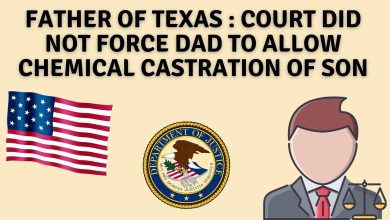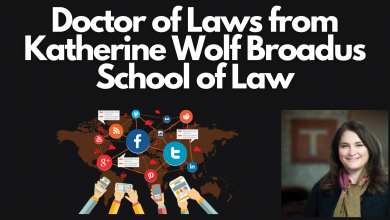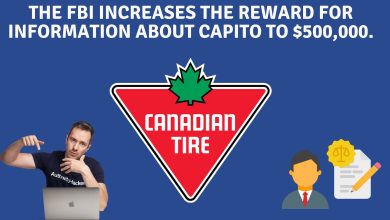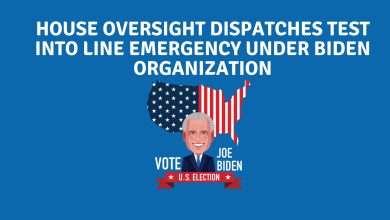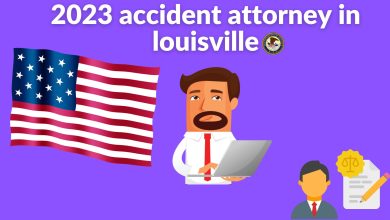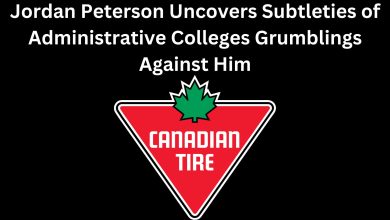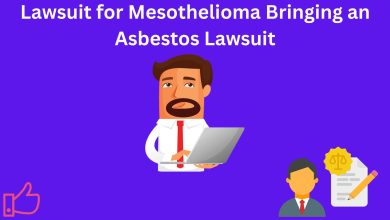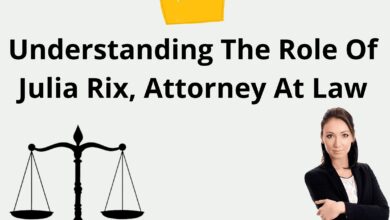Tenth Circuit Rules on Colorado’s Kid Misuse Secrecy Regulation
Given the reasonings hidden the decision in ‘Peck v. McCann’, comparative classification regulations in different states could now be in risk.

In a choice with possibly boundless effect, Peck v. McCann, 2022 U.S. Application. LEXIS 21956, 43 F.4th 1116 (tenth Cir. Aug. 9, 2022), the U.S. Court of Allures for the 10th Circuit decided that a Colorado rule that requires records of reports of kid maltreatment to be kept secret disregarded the Principal Change.
The court contemplated that a critical arrangement of the law, which rebuffs divulgence of data and information that doesn’t recognize the youngster, family, or source, isn’t barely custom fitted to advance the state’s
convincing interest in forestalling exposure of distinguishing data concerning kid misuse. Given the reasonings fundamental this decision, comparative secrecy regulations in different states could now be in danger.
Colorado’s Regulation on the Classification of Kid Misuse Records
Segment 19-1-307 of the Colorado Kids’ Code Records and Data Act requires that “reports of kid misuse or disregard and the name and address of any kid, family, or source or some other recognizing data contained in such reports
… be secret.” C.R.S. §19-1-307(1)(a) (2021). This necessity is authorized by two subsections containing separate punishments. To start with, under subsection 307(c)(1), “[a]ny individual who disregards any arrangement of [] subsection (1) is at fault for a class 2 trivial offense … .” Second, under subsection 307(4),
Any individual who inappropriately deliveries or who tenaciously allows or energizes the arrival of information or data contained in the records and reports of kid misuse or fail to people not qualified for access such data by this segment or by area 19-1-303 commits a class 1 wrongdoing … .
While this allure was forthcoming, Colorado Council’s diminished the punishments in both of these subsections — to a common infraction and a class 2 misdeed, separately — yet offended party’s protected test did not depend on the seriousness of the punishments. See Peck, 2022 U.S. Application. LEXIS 21956, at *4, n.1.
Segment 307 capabilities to some extent “to satisfy Colorado’s commitments under the Kid Misuse Counteraction and Treatment Act (‘CAPTA’), which conditions government subsidizing for the state kid i
nsurance frameworks on” a state’s protections of the secrecy of kid misuse records. Id. “Every year, Colorado’s Division of Human Administrations affirms that Part 307’s privacy necessity is being upheld to guarantee that the state gets CAPTA subsidizing from the central government.” Id. at *4-*5.
The Question
The offended party, lawyer Jessica Peck, addresses relatives in youngster misuse and disregard examinations in Colorado. Id. at *5. In 2019, she addressed the mother of a minor young lady in a reliance and disregard case in Denver Adolescent Court. Id. While the case was forthcoming,
she offered expressions to Westword, a Denver week after week magazine, fighting that Denver Human Administrations had no proof against her client. She furnished Westword with a case manager’s email about her client and gave Westword the overall setting of an impending hearing. Id.
The Adolescent Court judge gave a request expressing that she accordingly ‘”may have uncovered data … disregarding §19-1-307(1)(a).'” Id. at *5-*6. She wasn’t endorsed or reached by policing, “Denver’s Head prosecutor had never arraigned anybody under Segment 307.” Id. at *6. However,
the litigants — the Denver Head prosecutor and Chief Overseer of Colorado’s Branch of Human Help — didn’t repudiate a purpose to indict Peck or any other person under the rule. Id. at *6-*7.
Peck then sued the litigants battling that §307 was unlawful and trying to urge its requirement. Id. at *6. The gatherings recorded specified realities for synopsis judgment purposes, and Peck presented a sworn statement declaring that she (1) “wants in the future to depend on the youngster misuse reports …
to get down on wrongdoing by government authorities and government workers to the general population,” (2) accepts the rule is illegal, and (3) “would gamble with arraignment under the resolution by taking part in her ideal discourse.” Id. at *7. The region court conceded her synopsis judgment movement, decided that both §307(1)(A) and 307(4) are unlawful, and charged their implementation. Id.
Offended party Lays out Remaining To Challenge Preclusion Against Divulgence of Non-Distinguishing Data
Prior to arriving at the benefits of Peck’s Most memorable Change challenge, the circuit court tended to topic ward. Prominently, Peck wanted to uncover non-distinguishing data, and in the event that the resolution denied just the divulgence of recognizing data, she had claimed no injury.
Id. at *9. The court consequently started by deciphering the two subsections at issue to figure out what data they precluded from divulgence.
The court previously decided that the “plain text of Area 307(1) limits its degree to recognizing data just,” as shown by the two its subheading and its text. Id. at *10. The court accordingly presumed that Peck
needed remaining to challenge this subsection, and on the grounds that she had asserted no injury by any means under that subsection, it need not ask whether she had experienced an “physical issue as a matter of fact.” Id. at *13.
On the other hand, §307(4) precludes “the arrival of information or data contained in the records and reports of kid misuse or fail to people not qualified for access such data by this section[.]” Id. (citing C.R.C.
§19-1-307(4) (2021)). The circuit court saw that by precluding exposure of any “information or data,” §307(4) was “unambiguously expansive” and was not restricted to non-distinguishing data. Id.
at *14. Contrasted with §307(1), it “isn’t just more extreme (by making the demonstration a misdeed, in addition to a unimportant offense or common infraction) on individuals who purposefully uncover data; it is likewise more extensive, by rebuffing nonidentifying divulgences as well as distinguishing disclosures[.]” Id. at *14-*15. The court hence inferred that Peck had claimed a physical issue under §307(4). Id. at *18.
The 10th Circuit then resolved that Peck had remaining to challenge §307(4). As to injury as a matter of fact, the court noticed that Peck had not yet been exposed to indictment or the danger of arraignment. Id. at *19. However, Peck had enough settled a “chilling impact” on her ideal discourse in her unchallenged, sworn statement, where she guaranteed a
current longing to participate in discourse disallowed by §307(4) and a trustworthy danger that it would be upheld against her. Id. at *20-29. Regarding the last option factor, the court emphasized that litigants had not denied any plan to arraign her. Id. at *28. “To be sure,
they couldn’t do as such, in light of the fact that they attest that guaranteeing implementation of Area 307 is fundamental for their admittance to government financing under CAPTA.” Id. For comparable reasons, the circuit court held that her protected test was ready under its merciful way to deal with readiness in First Revision cases. Id. at *30-*33.
The 10th Circuit Decides That §307(4) Disregards the Principal Revision
Having at long last arrived at the benefits of Peck’s case, the 10th Circuit had generally little trouble presuming that §307(4) abused the Primary Revision. The circuit court started with the reason that this subsection “is a substance put together limitation with respect to discourse,” meaning it was dependent upon severe examination. Id. at *33. There was no debate that Colorado had “a convincing state interest in safeguarding its kid misuse data.” Id. (citing Pennsylvania v. Ritchie, 480 U.S. 39 (1987)).
Peck fought rather that prohibiting revelation of non-distinguishing data was not a barely custom fitted method for accomplishing that objective. Id. The court noticed that it was litigants’ “significant weight” to show that their substance based limitation was the most un-prohibitive method for accomplishing the convincing state interest. Id. at *33-*34.
The court then, at that point, dismissed litigants’ defenses. Litigants originally demanded that precluding exposure of all data inside youngster misuse records was “the main practical way” to safeguard kids and their families and that defining a boundary among recognizing and non-distinguishing data would be troublesome. Id. at *34.
The court concurred it would be troublesome however noticed that this was not the test; all things being equal, the inquiry was whether no current option would be both less prohibitive and accomplish the state’s convincing interest. Id. at *35. Respondents had introduced no proof that Peck’s proposed option would be inadequate. Id.
Respondents likewise battled that §307 completely was important to satisfy the state’s commitments to keep getting government assets under CAPTA. Id. at *38. The circuit court countered:
“no justifiable reason for a state is disregarding the sacred privileges of its residents to say ‘the central government is paying us to make it happen.'” Id. at *38-*39.
At long last, respondents saw that 48 different states have regulations like §307. In any case, respondents gave not a great reason to those different regulations, nor did this perception support an end that restricting Colorado’s forbiddance to recognizing data would be unfeasible.
Id. at *38. The court accordingly attested the area court’s structure to the degree it decided that §307(4) was illegal and remanded for the lower court to consider whether §307(4) was severable from the remainder of the rule. Id. at *40.
However the 10th Circuit’s decision doubtlessly doesn’t refute youngster misuse classification laws of some other express, its thinking seems to have expansive materialness. Different states may now need to legitimize their comparable regulations, and the circuit court’s decision and reasonings will certainly be bantered in any such cases.


